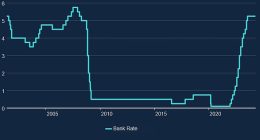
Every half decade as spring is creeping into the capital, Beijing releases a new five-year plan to signal key economic policy goals. This year, the outline of the plan contains a new and intriguing goal: Keep manufacturing as a percentage of the total economy “basically stable.”
It might seem odd for the world’s factory powerhouse—which has gained global export market share during the pandemic—to worry about deindustrialization. But in fact this concern isn’t coming out of nowhere. What is less clear is whether Beijing has the right tool kit to deal with the challenge.
Most countries see the share of manufacturing in their economy fall as they move up the income ladder: Richer citizens have more money to spend on services like healthcare and entertainment. China has already seen the share of manufacturing in its economy decline from 32% in 2010 to 26% in 2020. On its own, this isn’t problematic, and still puts it well above other big economies like the U.S. and Japan.
What is worrisome about this trend is the context in which it is happening. Manufacturing tends to be more productive than services in most economies, but that may be especially the case in China since big parts of its factory sector are integrated with global supply chains—while the service sector remains heavily protected. China’s service sector remains among the most closed of major economies, according to data from the Organization for Economic Cooperation and Development, on par with Russia. In 2020 for digital services specifically, China came in second to last out of 50 countries listed, just ahead of Kazakhstan.
To their credit, Chinese regulators increasingly realize that lack of competition is a major problem—as the recent regulatory push against internet giants like Tencent and Alibaba shows. What isn’t yet clear is whether this will lead to real improvements in productivity, or simply shore up the market position of politically connected firms like the big state banks, at the expense of innovators like the Alibaba-affiliated Ant Group.
Meanwhile, Beijing’s strategy for directly shoring up manufacturing is a mixed bag. New trade and investment deals with Europe and Asian nations will help, as will a higher five-year target for basic research spending. Efforts to further open up the auto sector are already bearing fruit.
But Beijing is also alienating major trading partners with its aggressive nationalism—just as its overall labor force is peaking. China’s urban labor markets have tightened dramatically over the past couple of years: The ratio of urban job openings to workers clocked in at 1.4 in late 2020, up from 1.1 as recently as 2017. Much higher cost pressures than multinationals are used to in China may not be far behind.
Beijing also appears to be increasingly committed to a state-led import substitution strategy in semiconductors, aviation and other expensive high-tech sectors. That might eventually produce some real global contenders—although unlike Japan, South Korea or Taiwan, China now has to work around active U.S. opposition to its climb up the value chain. But it could also simply produce a bevy of coddled, domestically-focused firms while sucking away increasingly scarce resources from exporters.
China’s economy has sprinted out the gate after recovering from the pandemic and, despite a hiccup in February, its factory sector looks likely to keep demonstrating its brawn throughout 2021. But to maintain competitiveness further out, Beijing still probably needs to make some tough political decisions. Key among those: freeing up its shrinking labor force to roam more easily in search of the best jobs, and fixing relations with its big customers abroad.
Write to Nathaniel Taplin at [email protected]
Copyright ©2020 Dow Jones & Company, Inc. All Rights Reserved. 87990cbe856818d5eddac44c7b1cdeb8









